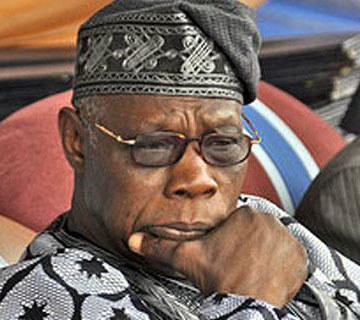THE Nigerian National Petroleum Company Limited (NNPCL) has extended an invitation to former President Olusegun Obasanjo for a visit to the Port Harcourt Refinery.
This follows his recent comments questioning the functionality of the refinery.
Obasanjo had referenced concerns raised by Shell Petroleum Development Company (SPDC) about potential corruption affecting the refinery’s operations.
In response, NNPCL’s Chief Corporate Communications Officer, Mr Olufemi Soneye, offered Chief Obasanjo the chance to tour the refinery, saying that the company is committed to openness.
Soneye highlighted that the refinery had undergone extensive rehabilitation, going beyond previous turnaround maintenance to a complete overhaul.
Soneye also invited Obasanjo to join NNPCL’s efforts to strengthen Nigeria’s energy security.
He clarified that NNPCL had transformed into a profit-driven private entity, moving away from its previous loss-making status.
Additionally, Soneye addressed reports claiming that NNPCL would cease crude oil supply to Dangote Refinery, dismissing them as false.
“We invite our esteemed former president to join us in this effort as we continue to deliver energy security for our nation and provide tangible benefits to Nigerians.
“His wisdom and experience are invaluable, and we assure him that his advice will always be welcomed and appreciated,” he said.
NNPCL’s invitation to the former president may have been inspired by an interview he granted to a Lagos State-based private television station on Thursday
Chief Obasanjo disclosed during the interview that his successor, Umaru Musa Yar’Adua, rejected a $750 million offer from Aliko Dangote, chairman of Dangote Group, to manage the Port Harcourt and Kaduna refineries in 2007.
He further discussed the difficulties faced with the Port Harcourt, Warri, and Kaduna refineries during his administration.
The former president revealed that NNPCL was aware of its inability to manage the nation’s refineries effectively but still assured Yar’Adua that it could operate them, leading to the rejection of Dangote’s offer.
“When I was president, I wanted to do something about the three refineries we have: Port Harcourt, Warri, and Kaduna. Aliko got a team together after I asked Shell to come and run it for us. And Shell said they wouldn’t,” Obasanjo said.
“Later on, I called them. I called the boss of Shell to come and tell me what the problem was, and he gave me four or five reasons. He (Shell boss) said, first of all, they make a major profit from upstream, not from downstream. He said they run downstream just to keep their head above water.
“Two, our refineries were too small: 60,000 barrels, 100,000 barrels, and I think 120,000 barrels. He said that at that time, the average refinery was going for 250,000 barrels.
“Three, he said our refineries were not well maintained. Fourth, he said that there was too much corruption around the activities of our refinery and they would not want to get involved in that.
“After that, Aliko got a team together and they paid $750m to take part in PPP (Public–Private Partnership) in running the refineries. My successor refunded their money and I went to my successor and told him what transpired. He said NNPC said they wanted the refineries and they could run it. I now said but you know they cannot run it.”
Obasanjo also criticized the inefficiency surrounding the management of the refineries and highlighted his confidence in Dangote’s ability to manage his privately owned refinery effectively.
“I was told not too long ago that since that time, more than $2 billion have been squandered on the refinery and they still will not work,” he said. “If a company like Shell tells me what they told me, I will believe them. But here we are, over $2 billion squandered, and the refineries still won’t work.”
On 31 December 2024, Mele Kyari, the Group Chief Executive Officer (GCEO) of the NNPC, announced that the Warri Refining and Petrochemicals Company (WRPC) in Delta State was now operational. Similarly, on 26 November, the NNPCL stated that the Port Harcourt refinery had officially commenced crude oil processing.
Eighteen-Eleven Media


